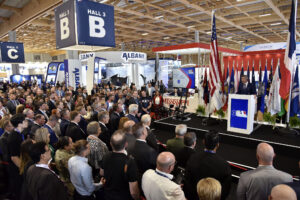
Boeing is actively investing in decarbonization efforts and sustainability within the aviation sector, with a clear focus on reducing its environmental impact. In 2018, Boeing became the first company to fly on 100% Sustainable Aviation Fuel (SAF). The company has also adopted a carbon management approach that follows a “avoid first, remove second” strategy to address carbon emissions.
The “avoid first” component focuses on minimizing emissions by investing in renewable energy, efficient infrastructure, and resource conservation. Meanwhile, the “remove second” aspect addresses harder-to-eliminate emissions, with Boeing expanding its investments in permanent carbon removal projects to diversify its offset portfolio. The company is also supporting the development of technology and policies for the Carbon Offsetting and Reduction Scheme for International Aviation (CORSIA), a global initiative backed by its airline customers.
Boeing is advancing five strategic pathways to help civil aviation meet its commitment to achieving net-zero carbon emissions by 2050. These pathways include fleet renewal, renewable energy, advanced technologies, operational efficiency, and verified offsets.
Sustainable aviation fuel (SAF) plays a key role in reducing emissions across both commercial and defence aviation. In 2024, Boeing issued guidance to global defence customers, stating that company-built military aircraft can operate on SAF, with blends of up to 50% with conventional fuel. This guidance aims to support military adoption of SAF as part of broader sustainability efforts.
Boeing’s sustainability initiatives also focus on renewable energy procurement, infrastructure investments, efficiency standards, and conservation practices—all designed to reduce the company’s environmental footprint. Achieving these goals requires a collective effort from Boeing’s employees, cultivating a culture of sustainability and integrating eco-friendly practices throughout the organization.

By prioritizing conservation, energy efficiency, renewable energy, and sustainable aviation fuel, Boeing is on a path to significantly reduce its greenhouse gas emissions. “We’re proud of the steady progress we’ve made in sustainability, which is always grounded in safety and quality,” said Boeing Chief Sustainability Officer Brian Moran. “Our commitment to decarbonizing the aviation industry, uplifting communities, and fostering inclusion drives us forward in our sustainable aerospace journey.”











